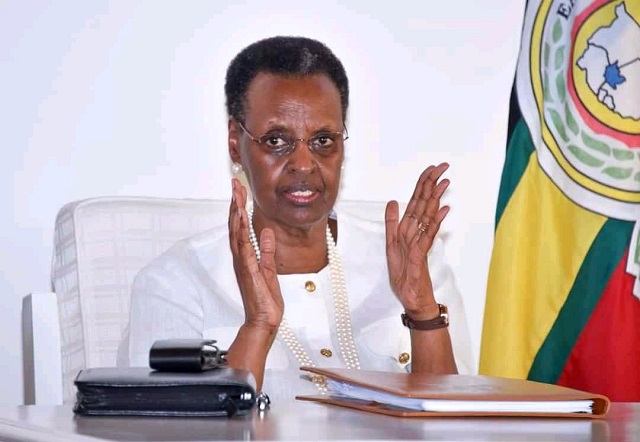
Kampala, Uganda | THE INDEPENDENT | The Ministry of Education and Sports has ordered the cancellation of contracts and recovery of funds advanced to contractors for stalled seed schools in 15 districts.
In the financial year 2018/19, the World Bank partnered with the education ministry to construct and fully equip secondary schools in sub-counties without public secondary schools under the Uganda Inter-Governmental Fiscal Transfers-UgIFT program. The first phase covered 117 schools that were expected to be completed in one year.
Whereas many schools constructed in the first phase are already operational, over 17 schools in Kyenjojo, Kanungu, Isingiro, Kagadi, Budaka, Kibuku, Mbale, Manafwa, Namisindwa, Gulu, Omoro, Nwoya, Maracha, Amuru, and Kyegwegwa districts have stalled.
In a letter to Chief Administrative Officers in the affected districts, Ketty Lamaro, the permanent secretary at the ministry of education, notes that contractors at the several sites have continuously demonstrated the lack of capacity to execute works awarded to them since 2018/2019 Financial Year.
“…local government should not offer contract extensions to these contractors. the affected local governments (should) immediately retender civil works,” Lamaro’s letter instructed before she ordered the affected districts to immediately initiate the process of termination of those with running contracts.
The Permanent Secretary further instructed local governments to value the works on the ground, pay, and commence the process of termination where the contract is still valid to ensure that the remaining works are presented to different service providers.
The failure to complete the construction of seed schools in the first phase is apparently affecting the smooth implementation of civil works under the second and third phases of the program, which is expected to end in June 2024. The government expects to construct more than 142 schools in the last phases.
Previously, the president had ordered that projects in the education ministry that had stalled and new ones should be handed over to the UPDF Engineering Brigade. However, Dr. Mugimba, the education ministry spokesperson notes that the directive couldn’t be implemented on the UGIFT-funded projects.
Mugimba said that by the time the president’s order were made, the government and World bank had already finalized agreements detailing how the UgIFT construction contracts should be handled.
“It was not possible to re-negotiate with the World bank to allow UPDF to take over those projects. So it was decided that the UPDF should take on projects, which are funded by the government of Uganda,” Dr. Mugimba said.
Adding that,” this means districts will have to get new contractors which are acceptable to the terms and conditions of the program.” The program has had challenges right from the start. Earlier mishaps were rooted in disagreements about the location of the proposed seed secondary schools.
But even after the dispute over the location of the schools was resolved, the ministry of education repeatedly noted that the construction of the schools was being affected by a lack of coordinated supervision of works given the fact that it was being implemented by the ministry of education and local government ministry.
*****
URN
 The Independent Uganda: You get the Truth we Pay the Price
The Independent Uganda: You get the Truth we Pay the Price



